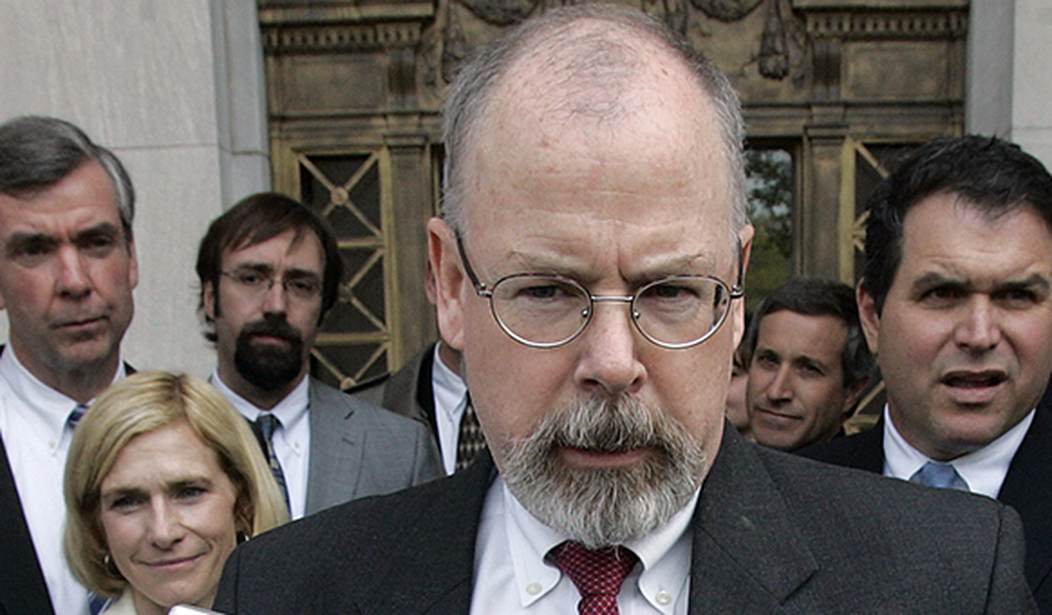Back in February, Michael Sussmann’s lawyers asked Judge Christopher R. Cooper to dismiss the case against their client. They argued that even if it were true that Sussmann had lied to the FBI about not working for a client, that lie was an “ancillary matter.” Today, Judge Cooper denied the request for a dismissal, meaning the case will now proceed to trial next month.
A federal judge on Wednesday refused to dismiss Special Counsel John Durham’s case against former Hillary Clinton campaign lawyer Michael Sussmann for allegedly lying to the FBI while hawking a later debunked theory linking Donald Trump to Russia.
US District Judge Christopher Cooper ruled that Sussmann must make his case to a jury — declining to toss the single false statements charge against him on technical grounds…
Sussmann’s legal team urged the judge to dismiss the case by arguing that his alleged lie was immaterial to any government action.
The judge offered an explanation of his decision which noted that Sussmann’s claim that his statement to the FBI was immaterial doesn’t address all parts of the relevant law.
“For a statement to be criminal under 18 U.S.C. § 1001, it must be both ‘false, fictitious, or fraudulent’ and ‘material,’” Judge Cooper wrote. He went on to explain:
The standard for materiality under § 1001 in this circuit is whether the statement has “a natural tendency to influence, or is capable of influencing, either a discrete decision or any other function of the [government] agency to which it was addressed.” United States v. Moore, 612 F.3d 698, 701 (D.C. Cir. 2010). Focusing on the first part of the standard, Sussmann argues that his alleged statement to Baker—that he was not at the meeting on behalf of a client—could not possibly have influenced what was, in his view, the only “discrete decision” before the Bureau at the time: whether to initiate an investigation into the Trump campaign’s asserted communications with the Russian bank.
Sussmann wanted the inquiry focused “only” on the “FBI’s decision to commence an investigation” based on the data he provided. That, Judge Cooper rationed, was a myopic view of the law — one “based on an overly narrow conception of the applicable standard.”…
“As the Special Counsel argues, it is at least possible that statements made to law enforcement prior to an investigation could materially influence the later trajectory of the investigation,” Judge Cooper continued. “Sussmann offers no legal authority to the contrary.”
In other words, the FBI didn’t only have a “discrete decision” about whether to open the case or not, they also had decisions about how to conduct the investigation. And, at least arguably, if they had been told up front that the information Sussmann was giving them was coming from the Clinton campaign (and people associated with the campaign), that might have had an impact on how they approached it.
This is very similar to the argument we saw play out with regard to the FISA court. Democrats argued that FBI submissions to the court were sufficient and accurate but the IG report and court itself eventually said they were not even close. In fact the IG identified 17 separate errors which led to the court taking a second look at all of the FBI’s requests for FISA warrants.
The trial is scheduled to begin on May 16. Clearly, Durham isn’t primarily interested in sending Sussmann to jail. He’s interested in getting him to cooperate with his investigation to avoid that possibility. So I guess we’ll see if this case goes to trial or if some sort of deal is made before that happens.








Join the conversation as a VIP Member